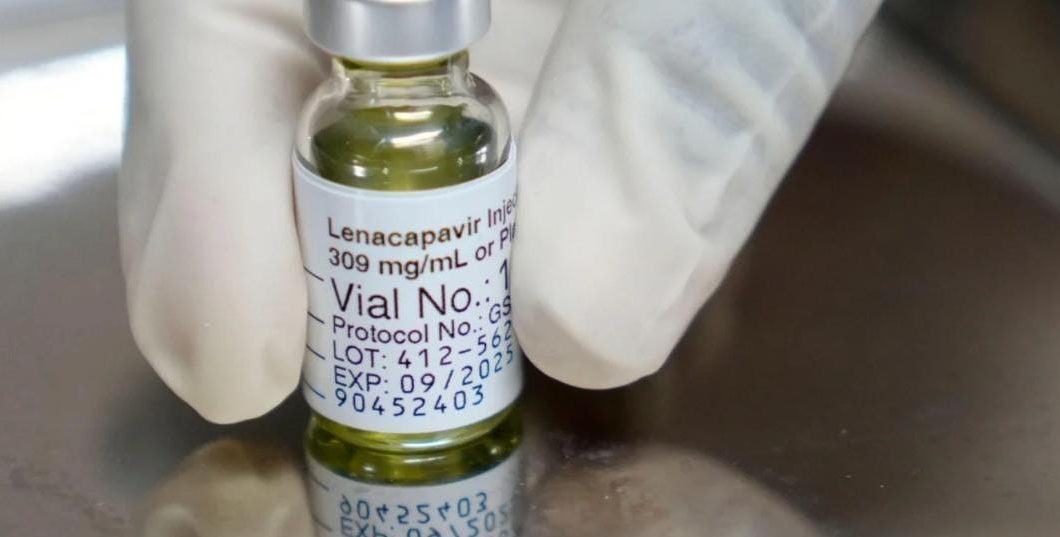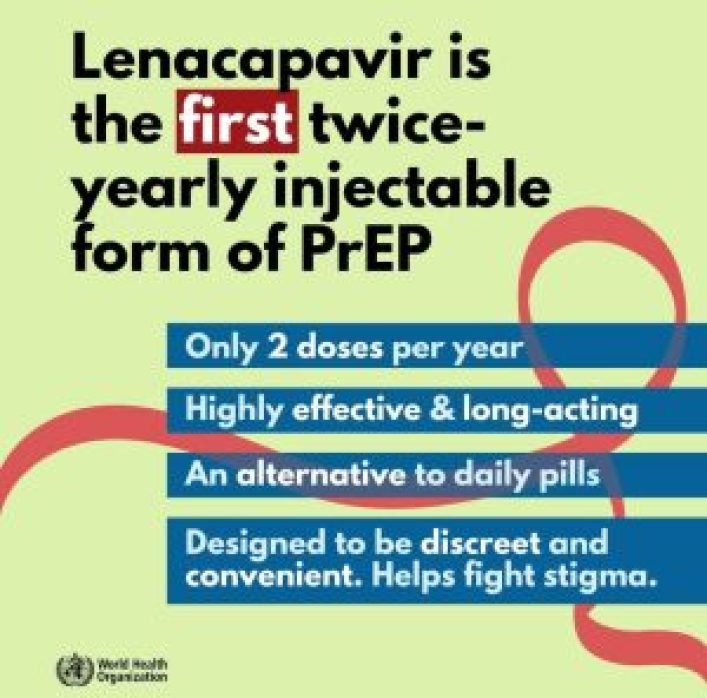
Kenya picked for early rollout of injectable HIV prevention drug Lenacapavir
Kenya has been selected as one of the 9 early adopter countries for the rollout of Lenacapavir (LEN), a long-acting injectable drug for HIV prevention, following its approval by the World Health Organization (WHO).
The Ministry of Health, through the National AIDS and STIs Control Programme (NASCOP), confirmed that it is working closely with various partners to fast-track the availability of the new drug, which is expected to be available in Kenya by January 2026.
“This strategic initiative marks a significant step toward our goal of ending HIV/AIDS by 2030, making this vision an increasingly attainable target,” a statement from NASCOP reads.
Lenacapavir was endorsed this week by the World Health Organization (WHO), which issued new guidelines recommending it as an additional pre-exposure prophylaxis (PrEP) option for people at high risk of HIV infection.
The announcement was made during the 13th International AIDS Society Conference (IAS 2025) on HIV Science in Kigali, Rwanda.
The drug administered only twice a year and is seen as a game-changer for people who struggle with daily adherence, face stigma, or have limited access to health services.
“While an HIV vaccine remains elusive, Lenacapavir is the next best thing: a long-acting antiretroviral shown in trials to prevent almost all HIV infections among those at risk,” said Dr Tedros Adhanom Ghebreyesus, WHO Director General.

LEN will be included in WHO’s expanding range of HIV prevention tools, alongside daily oral PrEP, injectable cabotegravir (CAB-LA), and the dapivirine vaginal ring.
WHO is calling on governments, donors, and health organizations to fast-track national rollouts and gather real-world data on LEN’s uptake and impact.
The global health agency noted that the policy action comes at a time when HIV prevention efforts have stalled, with 1.3 million new infections reported in 2024 alone.
WHO also indicated that the burden continues to fall disproportionately on key populations, including sex workers, men who have sex with men, transgender individuals, people who inject drugs, people in prisons, and adolescents.
Globally, about 39.9 million people are living with HIV, and while the number of people on PrEP has increased from 200,000 in 2017 to 3.5 million in 2023, the world is still far from achieving the target of 10.6 million people on PrEP by 2025.
The rollout of LEN in Kenya is expected to complement other biomedical prevention tools already in use, such as oral PrEP, post-exposure prophylaxis (PEP), voluntary medical male circumcision, and condom promotion.
The WHO noted that the introduction of new PrEP products like LEN must go hand in hand with simplified delivery models, including multi-month dispensing and community-based access points such as pharmacies, clinics, and outreach programs.
